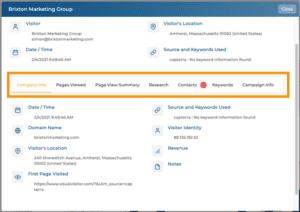
Simon works as a copywriter for Brixton Marketing Group. He’s in charge of publishing content on his clients’ websites. Ideally, his efforts will result in an increase of website traffic and sales.
Simon knows the best way to achieve this goal is to apply a trial and error approach-in other words, post content on the website and see if it gets any attention. But how does he know which pages are getting clicks?
Simon needs to start website tracking. This would allow him to track visitors to his clients’ sites. And he can even use it to find out which pages are receiving the most clicks.
Marketing agencies can use website tracking software to figure out how many people are interacting with their content. It helps them determine whether they’re making a difference. Businesses without the aid of marketing agencies likewise stand to benefit from website tracking. Why? It delivers a list of high-quality leads you might otherwise never find.
The stats are in and it turns out that the majority of your website visitors never reach out. They don’t fill out forms or take steps to contact your business. They simply leave your site unannounced. Fortunately, website tracking identifies these visitors and provides you with:
- Their name and contact info.
- Their location and browsing history.
- The name of their business.
- Contact info for their coworkers.
- An annual revenue estimate.
- The keywords which led them to your site.
You can use this information to determine which visitors are a good fit for your business. Instead of contacting every lead, identify the leads that are worth pursuing.

Interested in website tracking? Sign up for a free demo today. Find out which high-quality leads are browsing your site.





